With Presidents” Day coming up in the United States, we”re thinking a lot about Poets Laureate, the official poets of the nation.
The Poet Laureate Consultant in Poetry to the Library of Congress, as they”re formally known, is appointed by the Librarian of Congress for a one year term, serving from October to May. It”s fairly common, however, for the Librarian of Congress to renew a Poet Laureate”s term for an additional year, if the Librarian feels strongly that the poet has raised the national consciousness around the idea of a greater appreciation of reading and writing poetry.
While the Poet Laureate”s primary duty is to write poetry that reflects the pulse of the nation, poets are also tasked with carrying on the legacy of former Poet Laureate Allen Tate by recruiting poets and authors to contribute to the Library of Congress” Archive of Recorded Poetry and Literature.
Since the archive”s inception in 1943, over 2,000 writers have contributed audio recordings of their work. Today we”ll dive into the legacies of seven former Poets Laureate and the Presidents whose terms coincided with their own. But first, let”s see the whole list on this infographic:
Embed code – Share this infographic on your site:
Louise Bogan (1945 – 1946)
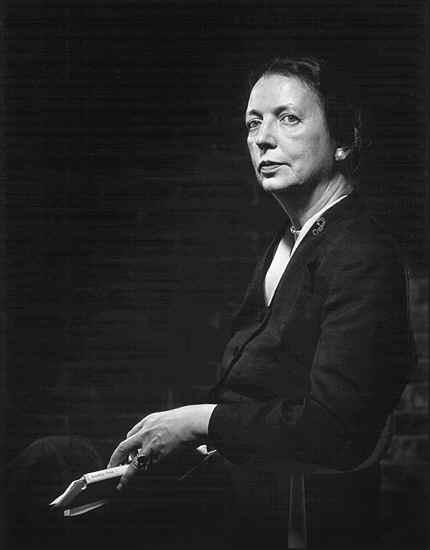 Lauded by The Poetry Foundation as one of the most accomplished poets of the twentieth century, Louise Bogan is the fourth ever Poet Laureate to the Library of Congress. A prolific poet whose work appeared in The New Republic, The Nation, and Atlantic Monthly, among others, Bogan”s writing focused on female speakers she described as the epitome of intemperate, antisocial, and even dangerous desires. She worked as a poetry reviewer for The New Yorker for nearly 40 years, resigning shortly before her death, saying that she was tired of “struggling not to be a square”. Bogan”s term as Poet Laureate began when President Franklin D. Roosevelt was in office. Roosevelt died in April of 1945, however, so Bogan”s term also overlapped with President Harry S. Truman”s presidential term.
Lauded by The Poetry Foundation as one of the most accomplished poets of the twentieth century, Louise Bogan is the fourth ever Poet Laureate to the Library of Congress. A prolific poet whose work appeared in The New Republic, The Nation, and Atlantic Monthly, among others, Bogan”s writing focused on female speakers she described as the epitome of intemperate, antisocial, and even dangerous desires. She worked as a poetry reviewer for The New Yorker for nearly 40 years, resigning shortly before her death, saying that she was tired of “struggling not to be a square”. Bogan”s term as Poet Laureate began when President Franklin D. Roosevelt was in office. Roosevelt died in April of 1945, however, so Bogan”s term also overlapped with President Harry S. Truman”s presidential term.
Elizabeth Bishop (1949 – 1950)
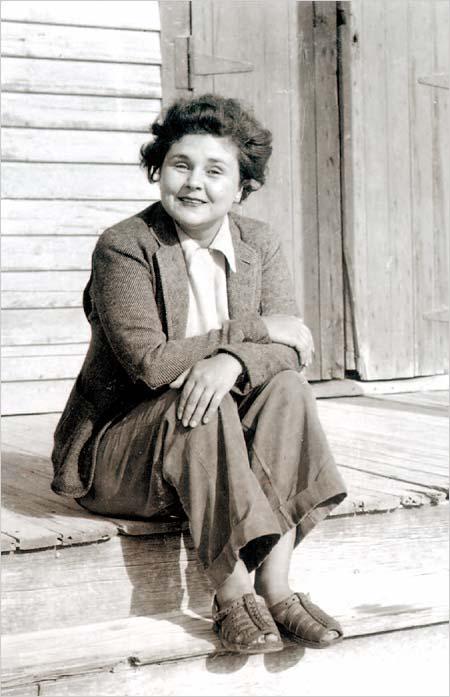 For Elizabeth Bishop, the Poet Laureate appointment was simply one in a long line of awards and accolades. In 1956, Bishop was awarded the Pulitzer Prize in Poetry for her book Poems: North and South – A Cold Spring, a book that contained her 1946 collection North & South as well as eighteen new poems for the “Cold Spring” section of the book. She went on to win the National Book Award in Poetry for her 1969 collection The Complete Poems, which included the text of North and South – A Cold Spring, her 1965 book Questions of Travel, and eight poems that had been previously unpublished. The Complete Poems also won the Neustadt International Prize for Literature in 1976. Like Poet Laureate Louise Bogan before her, Bishop”s term coincided with President Harry S. Truman”s time in office.
For Elizabeth Bishop, the Poet Laureate appointment was simply one in a long line of awards and accolades. In 1956, Bishop was awarded the Pulitzer Prize in Poetry for her book Poems: North and South – A Cold Spring, a book that contained her 1946 collection North & South as well as eighteen new poems for the “Cold Spring” section of the book. She went on to win the National Book Award in Poetry for her 1969 collection The Complete Poems, which included the text of North and South – A Cold Spring, her 1965 book Questions of Travel, and eight poems that had been previously unpublished. The Complete Poems also won the Neustadt International Prize for Literature in 1976. Like Poet Laureate Louise Bogan before her, Bishop”s term coincided with President Harry S. Truman”s time in office.
Gwendolyn Brooks (1985 – 1986)
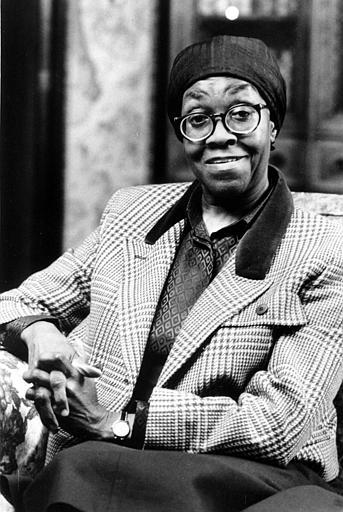 In 1950, Gwendolyn Brooks received the Pulitzer Prize for Poetry for her book Annie Allen, a collection of coming of age poems about a young black girl growing up in the Bronzeville neighborhood of Chicago. Brooks was the first African American woman to win the Pulitzer Prize for Poetry. Brooks started taking part in poetry workshops in the 1940s, where she met and received mentorship from Langston Hughes. Before she was appointed Poet Laureate of the United States, Brooks became the Poet Laureate of Illinois, a position she held from 1968 until her death in 2000. Brooks” term as United States Poet Laureate coincided with President Ronald Reagan”s time in office.
In 1950, Gwendolyn Brooks received the Pulitzer Prize for Poetry for her book Annie Allen, a collection of coming of age poems about a young black girl growing up in the Bronzeville neighborhood of Chicago. Brooks was the first African American woman to win the Pulitzer Prize for Poetry. Brooks started taking part in poetry workshops in the 1940s, where she met and received mentorship from Langston Hughes. Before she was appointed Poet Laureate of the United States, Brooks became the Poet Laureate of Illinois, a position she held from 1968 until her death in 2000. Brooks” term as United States Poet Laureate coincided with President Ronald Reagan”s time in office.
Mona Van Duyn (1992 – 1993)
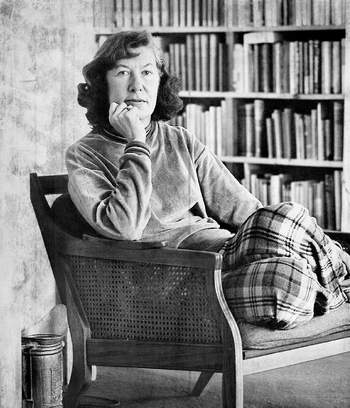 Mona Van Duyn won nearly every major United States prize for poetry over the course of her career. In 1971, she was awarded both the National Book Award for Poetry and the Bollingen Prize for her book To See, To Take. In 1991, she was awarded the Pulitzer Prize for her book Near Changes. She was a lecturer at Washington University in St. Louis, Missouri, for much of her career, holding the title of Adjunct Professor for several years and, later, the designation of Visiting Hurst Professor. She was incredibly prolific, publishing eleven volumes of poetry during her lifetime. Van Duyn”s time as United States Poet Laureate coincided with the end of President George H.W. Bush”s term and the beginning of President Bill Clinton”s term.
Mona Van Duyn won nearly every major United States prize for poetry over the course of her career. In 1971, she was awarded both the National Book Award for Poetry and the Bollingen Prize for her book To See, To Take. In 1991, she was awarded the Pulitzer Prize for her book Near Changes. She was a lecturer at Washington University in St. Louis, Missouri, for much of her career, holding the title of Adjunct Professor for several years and, later, the designation of Visiting Hurst Professor. She was incredibly prolific, publishing eleven volumes of poetry during her lifetime. Van Duyn”s time as United States Poet Laureate coincided with the end of President George H.W. Bush”s term and the beginning of President Bill Clinton”s term.
Rita Dove (1993 – 1995)
 In addition to being named Poet Laureate of the United States from 1993 to 1995, Rita Dove received an appointment as Special Consultant in Poetry from 1999 to 2000 in honor of the Library of Congress” bicentennial. After Gwendolyn Brooks, Dove is the second African American to be awarded the Pulitzer Prize for Poetry. She received the award for her 1986 book Thomas and Beulah. Like Poet Laureate Mona Van Duyn before her, Dove”s term coincided with President Bill Clinton”s time in office. But Dove”s association with American presidents didn”t end there. In 2011, she was awarded the National Medal of the Arts from President Barack Obama.
In addition to being named Poet Laureate of the United States from 1993 to 1995, Rita Dove received an appointment as Special Consultant in Poetry from 1999 to 2000 in honor of the Library of Congress” bicentennial. After Gwendolyn Brooks, Dove is the second African American to be awarded the Pulitzer Prize for Poetry. She received the award for her 1986 book Thomas and Beulah. Like Poet Laureate Mona Van Duyn before her, Dove”s term coincided with President Bill Clinton”s time in office. But Dove”s association with American presidents didn”t end there. In 2011, she was awarded the National Medal of the Arts from President Barack Obama.
Kay Ryan (2008 – 2010)
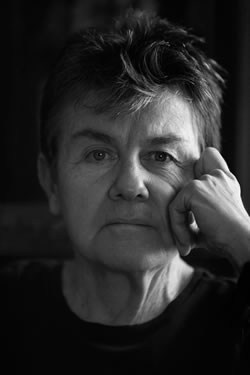 To date, Kay Ryan has published seven volumes of poetry, including her 2011 Pulitzer Prize winning book The Best of It: New and Selected Poems. The book was recognized for its witty and rebellious tone and was considered a simultaneously iconoclastic and joyful survey of forty-five years of Ryan”s poetry. Shortly after her term as Poet Laureate, Ryan was awarded a MacArthur Foundation Fellowship for her contributions to the art of poetry. Ryan”s time as United States Poet Laureate coincided with the end of President George W. Bush”s term and the beginning of President Barack Obama”s term. But this wasn”t Ryan”s only brush with the 44th President of the United States. In 2013, President Barack Obama honored Kay Ryan with a National Humanities Medal.
To date, Kay Ryan has published seven volumes of poetry, including her 2011 Pulitzer Prize winning book The Best of It: New and Selected Poems. The book was recognized for its witty and rebellious tone and was considered a simultaneously iconoclastic and joyful survey of forty-five years of Ryan”s poetry. Shortly after her term as Poet Laureate, Ryan was awarded a MacArthur Foundation Fellowship for her contributions to the art of poetry. Ryan”s time as United States Poet Laureate coincided with the end of President George W. Bush”s term and the beginning of President Barack Obama”s term. But this wasn”t Ryan”s only brush with the 44th President of the United States. In 2013, President Barack Obama honored Kay Ryan with a National Humanities Medal.
Natasha Trethewey (2012 – 2014)
 Natasha Trethewey is the first Poet Laureate to take up residence in Washington, DC, a move she made mid-way through her first term as laureate. Like many Poets Laureate before her, Trethewey won the Pulitzer Prize in Poetry for her 2006 book Native Guard, a collection that tells the story of an all-black regiment in the Union Army called the Louisiana Native Guards. Much of Trethewey”s work is influenced by the American Civil War and the racial legacy of the United States. Like Poet Laureate Kay Ryan before her, Trethewey”s term as Poet Laureate coincided with President Barack Obama”s time in office.
Natasha Trethewey is the first Poet Laureate to take up residence in Washington, DC, a move she made mid-way through her first term as laureate. Like many Poets Laureate before her, Trethewey won the Pulitzer Prize in Poetry for her 2006 book Native Guard, a collection that tells the story of an all-black regiment in the Union Army called the Louisiana Native Guards. Much of Trethewey”s work is influenced by the American Civil War and the racial legacy of the United States. Like Poet Laureate Kay Ryan before her, Trethewey”s term as Poet Laureate coincided with President Barack Obama”s time in office.



You must register to comment. Log in or Register.